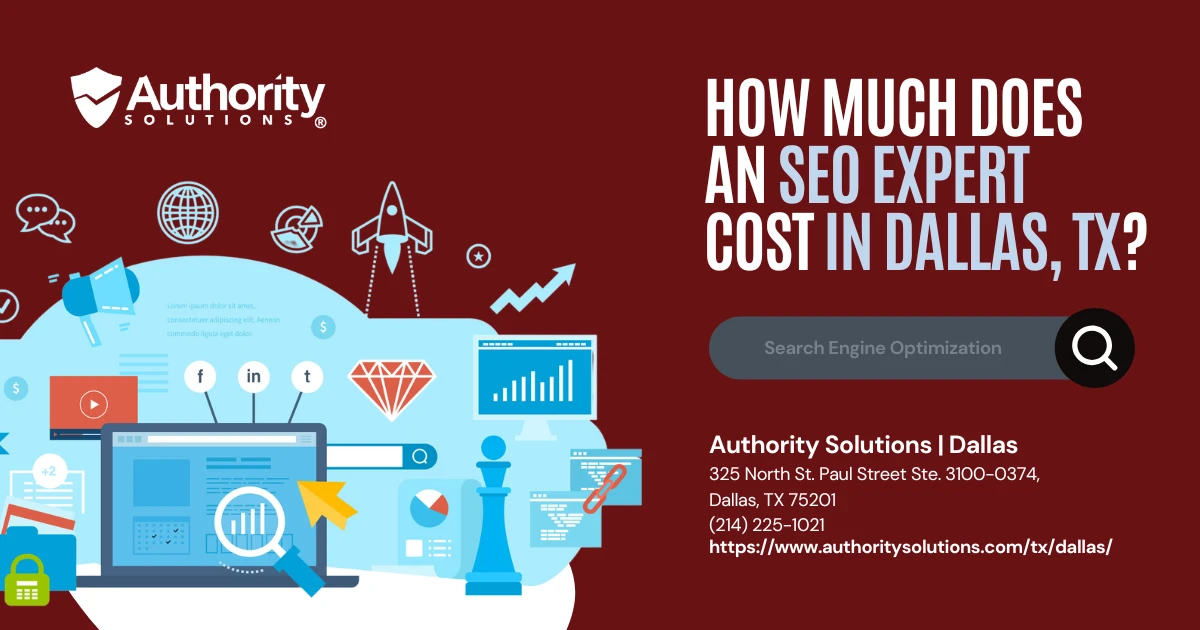Maximizing Roi: Effective Budgeting In Internet Marketing Services
Are you struggling to see a positive return on investment from your internet marketing efforts? Are you unsure of where and how to allocate your budget effectively? Maximizing ROI in internet marketing services can be a daunting task, but it is essential for the success of any online business.
In this article, we will explore the key steps to effective budgeting in internet marketing services. We will guide you through understanding different internet marketing services available and determining your target audience. We will also teach you how to set measurable marketing goals, allocate your budget strategically, and monitor and measure your results. By following these steps, you can make informed decisions about where to invest your resources and achieve maximum ROI for your online business.
Understand the Different Internet Marketing Services Available
You need to familiarize yourself with the various internet marketing services out there, so you can make informed decisions about which ones will yield the highest ROI for your business. Some of the most common internet marketing services include search engine optimization (SEO), pay-per-click advertising (PPC), social media marketing, email marketing, and content marketing.
SEO involves optimizing your website's content and structure to rank higher on search engines like Google. PPC advertising allows you to target specific keywords or demographics and pay only when someone clicks on your ad. Social media marketing involves leveraging social media platforms like Facebook and Twitter to build brand awareness and engage with potential customers. Email marketing is a highly effective way to reach out to existing customers or leads through targeted email campaigns. Finally, content marketing involves creating valuable content that attracts and engages potential customers.
Understanding each of these different internet marketing services will help you determine which ones are best suited for your particular business goals and target audience. By analyzing your industry, products or services, competition, budget, and other factors, you can effectively allocate your resources towards the tactics that are most likely to generate a high return on investment (ROI). With this knowledge in hand, you can confidently move forward in developing an effective internet marketing strategy that delivers results for your business.
As you delve into understanding these different internet marketing services available today, it's important also to determine who comprises your target audience. This is because each service caters differently depending on certain demographics such as age groups or interests. Knowing who they are helps tailor-fit each tactic in reaching them effectively while maximizing ROI at its fullest potential without wasting resources toward uninterested audiences.
Determine Your Target Audience
Identifying the intended audience is crucial for any marketing strategy to succeed. You need to understand who your target customers are, what they want, and how you can reach them effectively. Here are four actionable steps to help you determine your target audience:
- Conduct market research: Understand the demographics, psychographics, behavior patterns, and needs of your potential customers. Use tools like surveys, focus groups, social media analytics or customer feedback to gather this information.
- Create buyer personas: Develop a detailed description of your ideal customer based on the data collected from market research. Include information such as age range, gender identity, occupation, education level, hobbies or interests.
- Analyze competitors: Look at who your competitors are targeting and how they are doing it. Identify gaps in their approach that you could fill or find a unique angle that distinguishes your brand from theirs.
- Test and refine: Once you have identified your target audience and crafted a marketing plan tailored specifically for them - test it out! Measure its effectiveness with metrics such as conversion rates or engagement levels then adjust accordingly.
By determining your target audience effectively, you're able to craft messaging that resonates with them on a deeper level - increasing conversions and ROI alike! Next up we'll explore how setting measurable marketing goals ties into this process seamlessly without missing a beat!
Get found online with Authority Solutions®' SEO.
Set Measurable Marketing Goals
Setting measurable marketing goals is a crucial step in any successful campaign, as it allows for clear benchmarks and assessment of progress. Without specific targets to aim for, it can be challenging to know how effective your efforts are and whether you're on track to achieve your desired outcomes. Measurable marketing goals should be SMART - specific, measurable, achievable, relevant, and time-bound.
Specificity is key when setting marketing goals; they need to relate directly to the campaign's objective. Measurable goals allow you to track progress towards these objectives using metrics such as click-through rates or website traffic. Achievability ensures that the goal is realistic given current resources, while relevance means that it aligns with your overall business strategy. Finally, all marketing goals should have a deadline so that progress can be tracked over time.
Once you've established your measurable marketing goals, you'll need to allocate your budget strategically to achieve them effectively. By utilizing data-driven insights from previous campaigns or market research reports about customer habits and preferences online or offline channels used by competitors in similar industries - it's possible for SMEs (small-medium enterprises) looking for maximum ROI on their digital investment dollars!
Allocate Your Budget Strategically
When it comes to allocating your internet marketing budget, you want to make sure you're getting the most bang for your buck. Prioritizing high-ROI services is crucial in achieving this goal. By testing and optimizing your campaigns, you can continuously improve their effectiveness and maximize your return on investment. So, take a strategic approach to budgeting and focus on what works best for your business.
Prioritize High-ROI Services
If you want to maximize your ROI, it's crucial to prioritize high-ROI services in your internet marketing budget. These services are the ones that will give you the most significant return on investment for every dollar spent. By focusing on high-ROI services, you can ensure that your marketing efforts are contributing significantly to your bottom line.
Some examples of high-ROI services include search engine optimization (SEO), pay-per-click advertising (PPC), and email marketing. These channels have been proven time and time again to generate a strong return on investment for businesses across different industries. By allocating more resources towards these channels, you'll be able to see tangible results in terms of increased website traffic, lead generation, and sales conversions. As a result, prioritizing high-ROI services should be an essential part of any internet marketing strategy looking to maximize their ROI.
By prioritizing high-ROI services in your internet marketing budget, you're already taking a step towards boosting your ROI. But don't stop there - testing and optimizing your campaigns is equally important in ensuring long-term success with internet marketing.
Test and Optimize Your Campaigns
Now that you have prioritized high-ROI services, it's time to test and optimize your campaigns. This step is crucial in maximizing your ROI as it allows you to identify which strategies are working and which ones need improvement.
Testing involves creating different versions of your campaigns and comparing their performance. For example, you can create two ad variations with different headlines or target audiences and see which one generates more clicks or conversions. Once you have identified the winning version, you can optimize it further by tweaking its elements such as the copy or images to make it even more effective. By continuously testing and optimizing your campaigns, you can ensure that every dollar spent on internet marketing services is maximized for its ROI potential.
As you move forward with testing and optimization, keep in mind that monitoring and measuring your results is equally important. Without proper tracking tools in place, it's impossible to know how well your campaigns are performing and where improvements can be made. In the next section, we'll delve into this topic further so that you can gain a deeper understanding of how to monitor and measure your results effectively.
Monitor and Measure Your Results
To effectively monitor and measure your results in internet marketing services, you'll need to regularly analyze your data and adjust your strategy accordingly. This means keeping track of metrics that matter most to your business, such as website traffic, conversion rates, and customer engagement. By monitoring these metrics on a regular basis, you can identify areas of improvement and adjust your campaigns accordingly.
One effective way to monitor your performance is through the use of analytics tools such as Google Analytics. These tools provide valuable insights into how visitors interact with your website, which pages are most popular, where users are coming from, and more. By using this information to refine your campaigns, you can optimize conversions and maximize ROI.
Another important aspect of measuring success is setting clear goals for each campaign. Whether it's increasing website traffic or boosting sales conversions, having specific objectives in mind can help guide decision-making and keep everyone on the same page. With a solid plan in place and the right tools at hand, you'll be well-equipped to monitor and measure the success of all your internet marketing efforts.
Frequently Asked Questions
What are some common mistakes businesses make when allocating their internet marketing budgets?
You may be making common budgeting mistakes for internet marketing, such as not tracking results or allocating too much to one channel. Stay informed and adapt your strategy regularly to maximize ROI.
How can businesses ensure they are reaching their target audience effectively?
To reach your target audience effectively, identify their demographics and preferences. Use data-driven strategies such as SEO, social media marketing, and personalized email campaigns. Regularly measure results to adjust tactics and improve effectiveness.
What metrics should businesses use to measure the success of their internet marketing campaigns?
To measure the success of your internet marketing campaigns, track metrics such as website traffic, click-through rates, conversion rates, and cost per acquisition. Use this data to adjust and optimize your strategies for maximum ROI.
How can small businesses with limited budgets still effectively utilize internet marketing services?
Limited budgets can still be effective in using internet marketing services. Focus on specific goals, target audience, and use cost-effective channels like social media and email marketing. Continuously measure success with analytics to optimize campaigns.
Are there any emerging internet marketing trends that businesses should be aware of when budgeting?
Stay ahead of the competition and maximize your budget by keeping an eye on emerging trends in internet marketing. Consider incorporating voice search optimization, AI-powered chatbots, and personalized video content into your strategy to stay relevant and effective.
Conclusion
Congratulations! You have successfully learned how to maximize your ROI by effectively budgeting for internet marketing services. By understanding the different options available, determining your target audience, setting measurable goals, and strategically allocating your budget, you can ensure that every dollar spent is working towards achieving your desired results.
However, it's important to remember that effective budgeting doesn't end with just allocation. Monitoring and measuring your results allows you to make necessary adjustments and optimizations along the way. With this approach, you can continuously improve and fine-tune your internet marketing strategies for maximum ROI. Remember to always stay informed of industry trends and best practices in order to stay ahead of the competition and achieve long-term success in your online marketing efforts.






